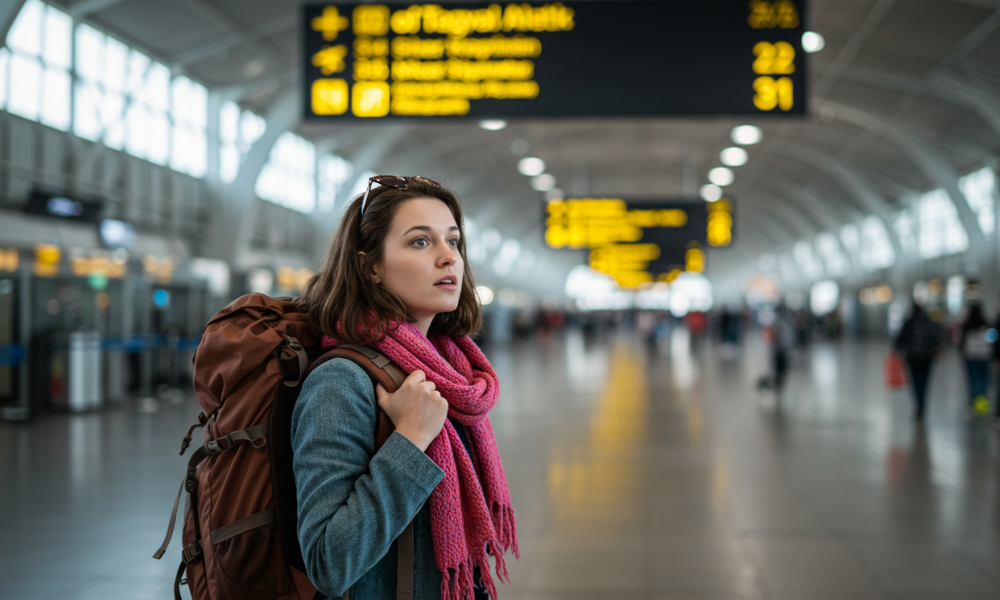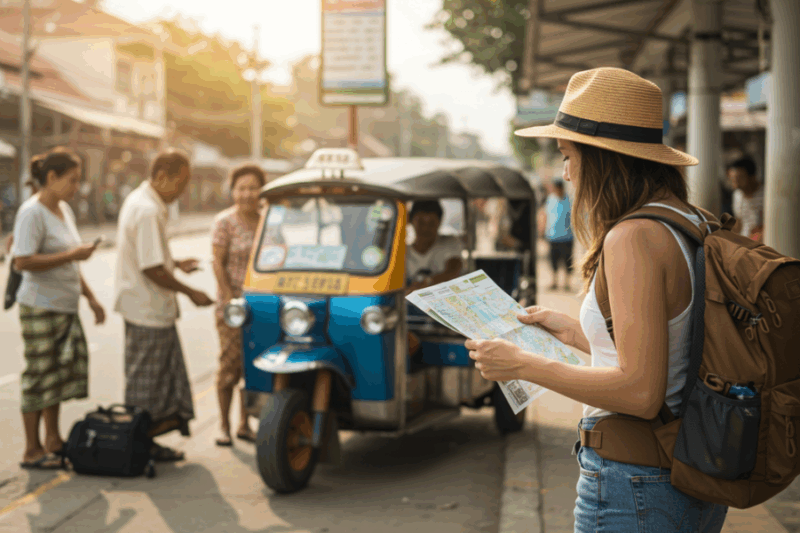Traveling to a new country for the first time is an exciting adventure, but it can also feel daunting without proper preparation. Understanding key aspects of your destination ensures a smoother, safer, and more enjoyable experience. This guide outlines essential things to know before visiting a new country in 2025, tailored for first-time travelers.

1. Research Visa and Entry Requirements
Why It Matters: Countries have varying entry rules, and non-compliance can lead to denied boarding or deportation.
What to Do: Check visa requirements via official government websites (e.g., U.S. State Department, UK Foreign Office) or embassy pages. Some countries offer visa-free entry (e.g., Thailand for 30 days), while others require e-Visas (e.g., India, $10-25) or pre-approved visas (e.g., China). Verify passport validity—many require 6 months beyond your stay.
Example: For Vietnam, U.S. citizens need an e-Visa ($25, applied online), valid for 30 days.
Tip: Apply for visas 1-2 months in advance and carry digital/physical copies of approval documents.
2. Understand Local Laws and Customs
Why It Matters: Ignorance of laws or cultural norms can lead to fines, offense, or unsafe situations.
What to Do: Research key laws (e.g., no vaping in Singapore, strict drug laws in Malaysia) and customs (e.g., remove shoes in Japanese homes, cover shoulders in Middle Eastern mosques). Learn gestures to avoid (e.g., pointing feet in Thailand is rude).
Example: In Japan, tipping is considered insulting; service is included in prices.
Tip: Use travel forums like Reddit’s r/travel or Lonely Planet’s Thorn Tree for local insights. Learn phrases like “thank you” or “sorry” to show respect.
3. Check Health and Vaccination Requirements
Why It Matters: Health risks vary by region, and some countries require proof of vaccinations.
What to Do: Visit the CDC’s Travelers’ Health page or WHO website for destination-specific advice. Common vaccines include yellow fever (required for parts of Africa/South America) or typhoid for Southeast Asia. Carry medications with prescriptions. Pack a first-aid kit (band-aids, pain relievers).
Example: Brazil may require yellow fever vaccination proof if coming from an endemic area.
Tip: Buy travel insurance with medical coverage ($50,000+ for international trips) from providers like World Nomads. Check if tap water is safe or stick to bottled water.
4. Plan Your Budget and Currency
Why It Matters: Unexpected costs or payment issues can disrupt your trip.
What to Do: Research average daily costs via Numbeo or BudgetYourTrip (e.g., $30/day in Vietnam, $80/day in Italy). Exchange a small amount of local currency ($50-100) before arrival for taxis or tips. Use fee-free cards like Revolut for ATM withdrawals or payments.
Example: In Thailand, street food costs $1-3, but ATMs charge $6-8 fees; withdraw larger amounts to save.
Tip: Notify your bank of travel plans to avoid card blocks. Carry two cards in separate places for emergencies.
5. Learn About Safety and Scams
Why It Matters: Staying vigilant prevents theft, scams, or unsafe situations.
What to Do: Check travel advisories on government sites for warnings (e.g., political unrest, natural disasters). Research common scams (e.g., fake tuk-tuk tours in Bangkok, taxi overcharges in Istanbul). Use a money belt or anti-theft bag (e.g., Pacsafe).
Example: In India, avoid “free” temple guides who demand payment later.
Tip: Save emergency numbers (e.g., 112 in Europe, 911 in the U.S.) and your embassy’s contact. Share your itinerary with a trusted contact.
6. Get Familiar with Transportation
Why It Matters: Navigating local transport saves time and money.
What to Do: Research public transport options (e.g., Tokyo’s subway, Bangkok’s BTS). Download apps like Citymapper or Moovit for routes. For taxis, use regulated services or apps like Grab (Southeast Asia) or Bolt (Europe). Learn fare norms to avoid overpaying.
Example: In London, an Oyster card ($3/day with cap) is cheaper than single tickets.
Tip: Book long-distance buses or trains (via 12GoAsia or Omio) in advance for discounts. Carry offline maps (Maps.me) for areas with poor Wi-Fi.
7. Prepare for Connectivity
Why It Matters: Staying connected helps with navigation, translation, and emergencies.
What to Do: Buy a local SIM card ($5-10 for 5-10GB) at airports or use an eSIM via Airalo for convenience. Check roaming costs with your provider if skipping local options. Download Google Translate for offline use and WhatsApp for free calls/texts.
Example: In South Korea, a 10-day SIM with 1GB/day costs $10 at Incheon Airport.
Tip: Test Wi-Fi in cafes (often free) but avoid sensitive transactions on public networks. Carry a 10,000mAh power bank.
8. Pack Smart and Light
Why It Matters: Overpacking complicates travel; inappropriate items can cause issues.
What to Do: Pack for the climate (check AccuWeather) and culture (e.g., modest clothing for temples). Use a carry-on (22x14x9 inches) to avoid fees. Follow the 5-4-3-2-1 rule: 5 tops, 4 bottoms, 3 shoes, 2 jackets, 1 accessory. Include a reusable water bottle and universal adapter.
Example: In Morocco, pack a scarf for mosque visits and sun protection.
Tip: Wear bulkiest items on the plane. Pack a small laundry detergent for hand-washing.
9. Plan a Loose Itinerary
Why It Matters: A flexible plan balances structure with spontaneity, reducing stress.
What to Do: List 2-3 must-see attractions (e.g., Colosseum in Rome, Halong Bay in Vietnam) and leave room for local discoveries. Book major sites (e.g., Angkor Wat tickets) in advance via official sites. Research free activities like markets or parks.
Example: In Paris, pre-book Louvre tickets ($20) but wander Montmartre freely.
Tip: Use Google Sheets or TripIt to organize bookings and share with your travel partner.
10. Prepare for Culture Shock
Why It Matters: New environments can be overwhelming; preparation eases adjustment.
What to Do: Read about your destination’s history and daily life via blogs or books. Watch YouTube vlogs for a visual feel. Practice patience at home to handle differences like slower service or language barriers.
Example: In India, expect vibrant chaos in markets; embrace it as part of the experience.
Tip: Journal daily (even 5 minutes) to process emotions. Connect with locals or expats via Meetup for tips.
Why This Matters in 2025
With global travel surging (post-COVID recovery), new countries are more accessible but require careful planning. Digital tools (e.g., eSIMs, translation apps) and sustainable travel trends make preparation easier, but visa rules and health protocols remain dynamic. Knowing these essentials ensures a confident, respectful journey.
Final Thoughts
Visiting a new country is a chance to grow, learn, and connect. By researching visas, customs, and safety, you’ll navigate your destination with ease. Start preparing now—check entry rules, learn a greeting, and pack light—for a trip that’s as enriching as it is exciting. Embrace the unknown, stay curious, and enjoy your first adventure abroad!



